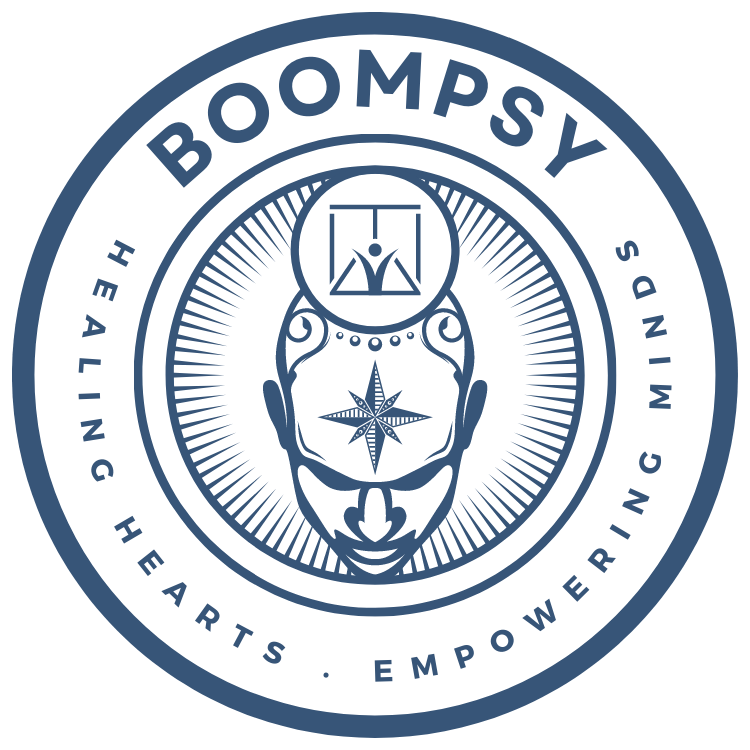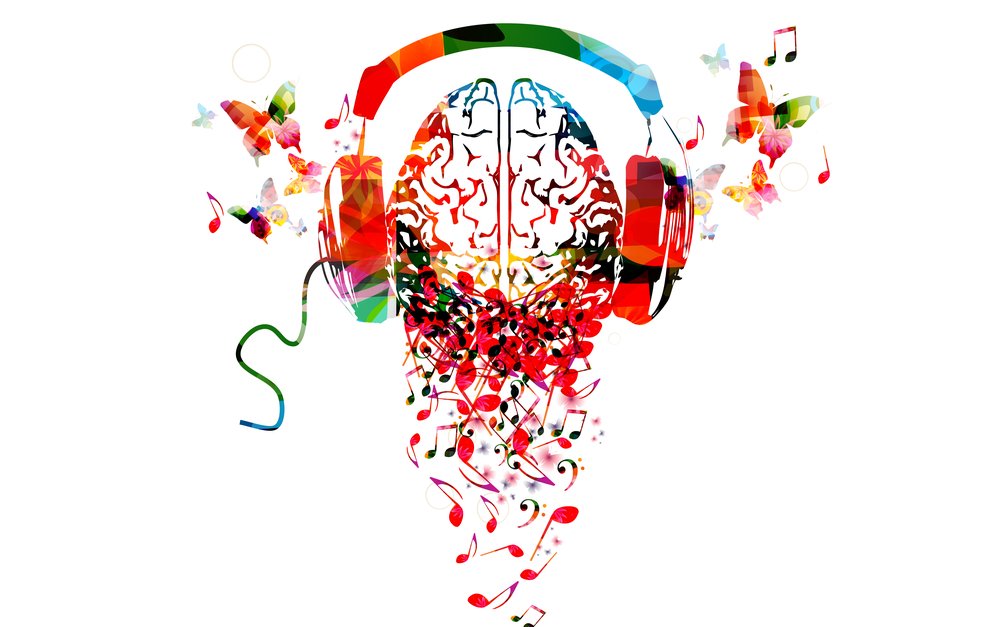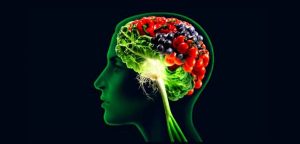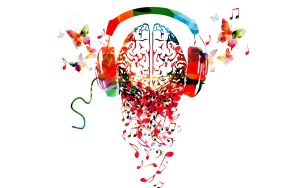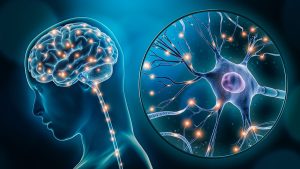The Fundamentals of Music Therapy
Music therapy is a well recognized clinical and evidence-based practice within healthcare that makes use of music interventions to accomplish individualized objectives within a therapeutic relationship. The music therapist uses music and all of its facets—physical, emotional, mental, social, aesthetic, and spiritual—to help clients improve or maintain their health. This structured use of sensory stimulation through sound can help achieve outcomes such as increasing cognitive function, reducing stress, enhancing physical mobility, and improving emotional well-being.
Music therapy involves various activities, such as listening to melodious sounds, playing a musical instrument, drumming, writing songs, and guided imagery. The selection of these tasks is highly personalized based on individual client’s needs and preferences. For example, a person battling depression may reap the benefits from creating a piece of music that shares their emotional state, while someone suffering from Alzheimer’s could experience enhanced memory recall through singing old songs.
Tracing Back the Roots of Music Therapy
The application of music for healing purposes finds its origin in prehistoric times, where community rituals often incorporated elements of music and dance for therapeutic intention. It was in ancient Greece where we find the first documented evidence of music being used for therapeutic reasons, with philosophers such as Pythagoras and Aristotle considering music’s impact on soul and body.
However, it was not until the aftermath of World Wars I and II that music therapy began to be recognized as a distinct therapeutic process. Musicians were often sought out to play for veterans suffering from war-induced trauma and physical injuries. Observing the positive impact of these musical interactions led to the realization of music therapy’s full potential. The first music therapy degrees were introduced in the United States in the 1940s, and since then the practice has spread across the globe. The evolution of this therapeutic modality led to the establishment of distinct bodies such as the American Music Therapy Association in 1998, setting guidelines for ethical practice, training, and professional music therapy certification.
According to a study from the Cambridge University, music therapy has shown substantial efficacy in treating mental health disorders such as depression, and has been successfully employed in different integrative health-care settings, proving the legitimacy of its practice.
The Interplay between Music, Mind, and Mood
A rich body of research validates the interrelation among music, mind, and mood. In a landmark Stanford study, researchers discovered that music engages various areas of the brain intertwined with memory, emotion, and attention. Music Therapy has an inherent power to evoke emotions, alter mood, and stimulate neural pathways leading to the involvement of cognitive, sensory, and motor functionalities. Depending upon the tempo, rhythm, and melody, it can lead to relaxation, excitement, or even nostalgia. For instance, fast beats can increase heart rate and stimulate brain-wave activity, promoting alertness. Conversely, slow tempo can lead to a calming effect, reducing stress levels by slowing down brainwaves.
Furthermore, neurologist Oliver Sacks’ work demonstrated how patients with various neurological conditions could respond to music, even when other forms of communication were lost. In his book “Musicophilia,” Sacks discussed the phenomenon of music’s power to heal and transform individuals with ailments such as Alzheimer’s, stroke, or Parkinson’s– shedding light on the profound effect music could play in cognitive rehabilitation.
Nuances of Music Therapy and Mental Health
Music therapy utilizes this connection between music, mind, and mood beneficially in the space of mental wellbeing. A study conducted by the British Academy of Sound Therapy resulted in 80% of participants reporting augmented mental health after twenty-nine minutes of music therapy per day. The individualized nature of music therapy enables it to be tailored according to a person’s mental health needs and personal musical preferences.
Take the case study of Sophie, a 30-year-old woman suffering from chronic depression and anxiety. As part of her treatment, therapists integrated structured music listening sessions into her routine. She was encouraged to consciously listen to specific calming musical pieces while simultaneously practicing mindfulness. Over a period, Sophie reported a significant decline in her anxiety levels and established a better grip over her depression. Notably, this highlighted music therapy’s profound impact on fostering personal growth and mental wellbeing.
Indeed, music therapy is a potent tool for personal development and mental wellbeing. By decoding and leveraging music’s influence on our minds and moods, one can navigate towards healing, resilience, and a more balanced mental state. The unique amalgamation of music, mind, and mood possesses an unmatched potential to redefine therapeutic landscapes and foster personal growth in times of both crisis and calm.
Ways Music Therapy Influences Personal Development
Fostering Emotional Development with Music
Music therapy has increasingly been used to foster emotional development. It’s a mode of communication that allows individuals to express their feelings without using words. According to a study conducted by The British Journal of Psychiatry, music therapy has been proven effective in reducing depression and anxiety levels in mental health patients. Another research conducted at the University of Miami School of Medicine showed that music therapy helped children undergoing surgery remain calm and manage their stress better compared to children who did not participate in such a therapy. Music therapy serves as a cathartic outlet that encourages individuals to connect with their emotions, therefore promoting better emotional awareness and empathy.
Enhancing Mental Capabilities Through Music Stimulation
Several studies show that music therapy holds significant benefits for cognitive functions and mental development. According to a research by the University of Kansas Medical Center, musicians tend to have higher cognitive abilities than non-musicians, demonstrating that active engagement with music can improve intellect. In another study on the effects of rhythm on the brain conducted by McMaster University, it was shown that rhythm enhances cognitive functions such as attention, linguistic abilities, and memory. Being exposed to music promotes better comprehension, creative thinking, and reasoning capabilities, therefore enhancing mental development.
Boosting Interpersonal Skills via Group Music Therapy
Music is universally appealing and serves as an effective means of overcoming social barriers. Group music therapy sessions, where individuals come together to create or listen to music, can promote positive social interactions and relationships. According to research conducted by Molinuevo and colleagues in 2019, the cooperative nature of group music therapy sessions can boost self-esteem, and foster a sense of belonging and mutual understanding. Participants learn shared responsibility, cooperation, and communication skills which contribute towards building a healthier social life. For example, drum circles have proven to be an effective form of group music therapy, fostering kinship and coordination among participants.
Promoting Personal Growth with Therapeutic Songwriting
Personal development incorporates self-awareness, goal setting, and building self-esteem, and music therapy, particularly therapeutic songwriting, can significantly assist in promoting these aspects. With therapeutic songwriting, individuals can delve into their thoughts and emotions, write about their experiences, dreams, and aspirations, eventually achieving deeper self-understanding and personal growth. In a 2016 study by Baker and Yeates, it was suggested that therapeutic songwriting significantly helped trauma patients improve their self-understanding, leading to personal growth, and a more positive outlook towards life.
The Role of Music Therapy in Emotional Health
Elucidating Emotional Connection With Music
Music has a profound impact on our emotional response. A 2013 study by Koelsch establishing connections between brain regions and music found significant implications. It observed that when we listen to music, our brain’s limbic system – responsible for emotions, responds. This is why we may feel a surge of happiness listening to an upbeat song or feel melancholic during a ballad.
Music Therapy: a Vehicle for Emotional Expression
Music therapy stands as a powerful vehicle for emotional expression. It often provides an outlet for individuals who find it challenging to express their feelings verbally. Thus, it serves as a non-threatening medium, especially for those who have undergone trauma or experience extreme stress and anxiety.
Here’s a case to examine: a study by de l’Etoile in 2016 showcased the efficacy of music therapy in managing stress. Participants who engaged in improvisational music therapy showed marked improvements in their stress levels. The calming effects of music helped in diverting their mind from stressful stimuli, enhancing their mood in the process.
Music Therapy to Improve Emotional Awareness and Regulation
Music therapy works wonders in bolstering emotional awareness and regulation. It aids individuals in identifying, accessing, and coping with a range of emotions. For instance, in a group setting, it prompts interactive exercises that nurture understanding and empathy. It can be utilized to instill coping skills, helping individuals better manage negative emotions like fear or anger and thereby improving their emotional health.
Let’s spotlight a compelling case: Nordoff-Robbins music therapy, a unique improvisational approach to music therapy. This intervention focuses on creating instant music collaboratively between the therapist and client. This process actively engages the client in expressing their emotional state through music, fostering emotional growth, and resilience over time.
Reducing Anxiety and Depression with Music Therapy
Anxiety and depression, unfortunately, hold a significant footprint on modern society. It’s here that music therapy steps in as a holistic, natural, and effective way to alleviate these conditions.
According to a systematic review by Aalbers and colleagues in 2017, music therapy significantly reduces depressive symptoms in various populations. Calming music aids in lowering the stress hormone “cortisol”, thus reducing anxiety levels. It also stimulates the release of “dopamine”, a neurotransmitter that sparks feelings of pleasure and satisfaction, boosting an individual’s mood and outlook.
In navigating the multifaceted realms of emotional well-being, music therapy emerges as an incredibly potent tool. It not only assists individuals in acknowledging and regulating their emotions but also provides a safe haven for emotions to be expressed and experienced.
Music Therapy Techniques for Mental Well-being
Lyric Analysis
One of the most common and effective techniques is lyric analysis, where therapeutic procedures are applied by analyzing lyrics of a song that holds significance to the client. The aim is a guided exploration of their feelings, emotions, and thoughts in relation to the song. A case study by Baker and Wigram in 2005 with a teen suffering from anxiety disorder utilized this technique, resulting in a significant reduction of the client’s stress level. The teenager started communicating his feelings more openly, an outcome highlighting the profound impact of lyrics analysis in music therapy.
Improvisational Music Making
Improvisational music making is another effective technique that aids in expressing feelings that might be difficult to put into words. In this approach, clients create their own music using instruments, often resulting in the liberation of repressed emotions. According to a 2016 survey from the Journal of Music Therapy, improvisational music making has shown tremendous benefits in reducing symptoms of depression and anxiety. Not only does it foster higher self-esteem, but it also develops problem-solving skills.
Music-Assisted Relaxation
One of the primary techniques used for those suffering from high levels of anxiety or stress is music-assisted relaxation. This incorporates techniques like progressive muscle relaxation and deep breathing exercises along with calming music. A clinical trial in 2017, published in the Cochrane Database of Systematic Reviews, reported that music-assisted relaxation significantly contributed to reducing blood-pressure levels, heart rates, and cortisol levels.
Songwriting or Composition
Another powerful technique is songwriting or composition, where clients are encouraged to write or compose their own songs to enable emotional expression. This can be immensely healing and therapeutic as the act of creating provides an outlet for clients to express themselves, their feelings, their story. According to the Journal of Music Therapy in 2010, songwriting can significantly improve feelings of well-being, coping strategies, and overall mental health in adolescents with emotional, behavioral, and learning disorders.
Music and Imagery
A less commonly known, but no less impactful technique is music and imagery, where the client listens to a piece of music, and then shares the images, feelings, and sensations aroused during that time. This powerful technique has remarkable effects on stress management, self-awareness, and emotional healing. Research conducted by McKinney and Honig in 2011 on patients with chronic stress conditions, revealed that music and imagery led to significant improvements in their overall mental health.
Music Therapy and Stress Reduction: An Insight
Understanding the Connection Between Music Therapy and Stress
There’s an intrinsic link between music and our emotions. According to a study conducted by the University of Alberta, music stimulates the same part of the brain that is activated when you are in love, eating, or taking psychoactive drugs. Recognizing this connection makes it easier to understand how music therapy not only reduces stress but also instigates the brain’s reward system, producing feelings of pleasure and relaxation.
A case study from the British Journal of Psychiatry (2011) revealed positive results in reducing anxiety, depression, and stress levels among a group of adults undergoing cancer treatment. The patients who were administered music therapy sessions reported feeling more relaxed and at ease, compared to those who did not participate.
Music Therapy as a Buffer Against the Physical Impacts of Stress
Beyond the emotional benefits, music therapy also combats the physical toll that stress can take on the body. Chronic stress can lead to numerous health complications like heart disease, diabetes, and depression. By reducing stress levels, music therapy indirectly helps prevent these complications from arising.
In a research study published by the Journal of Advanced Nursing, music was used to soothe patients before eye surgery. The results pointed towards lower cortisol levels, indicating a decrease in stress, in the patients who listened to relaxing music when compared to those who didn’t. This highlights the efficacy of music therapy in stress management and showcases how it can be incorporated in various medical scenarios.
The Role of Music Therapy in Fostering Resilience
Resilience, the ability to thrive during adversity, is another essential aspect of mental well-being that can be nurtured through music therapy. Music can provide a platform to process emotions, fostering resilience by helping individuals face various challenges through emotional expression and understanding. By using music to cope with stress, individuals not only lower their immediate stress levels but also arm themselves with a powerful tool they can use when future stressful situations arise.
A study published in the Frontiers in Psychology (2018) found that adolescents who actively engaged in music – by playing, composing, or listening –handled stress better than those who did not. They exhibited high resilience levels, and this, in turn, led to better mental health outcomes in the long term.
Case Studies: Real-world Impacts
1. Veterans Coping with PTSD
One practicality of music therapy is seen in helping veterans dealing with post-traumatic stress disorder (PTSD). In an intensive study conducted by case managers at the Walter Reed Army Medical Center, music therapy sessions led to significant improvement in treated veterans, who demonstrated reduced physiological hyperarousal, fewer flashbacks, and a handicap in avoidance/numbing symptoms. Moreover, the veterans reported an increased sense of control over their lives.
2. Adolescents with Emotional Disorders
Treatment of adolescents with emotional disorders also serves as a proof point for the effectiveness of music therapy. In a controlled clinical trial with 50 subjects, it was found that adolescents who participated in group music therapy sessions had reduced symptoms of emotional disorder, showed substantial improvements in self-esteem and active participation in school and community activities compared to the control group.
3. Effectiveness in Treating Autism
Music therapy has shown to be effective in dealing with the neurodevelopmental disorder Autism. A peer-reviewed study consisting of 30 children with Autism Spectrum Disorder (ASD) reported that after music therapy, these children expressed more emotions and their communication skills improved. The outcome was very positive as it enhanced their behavioral development.
4. Individuals with Alzheimer’s Disease
Alzheimer’s disease, a neurodegenerative disorder causing a progressive loss of cognitive function and memory, significantly affects the quality of life. However, music therapy offers a ray of hope. A published study in the American Journal of Alzheimer’s Disease & Other Dementias revealed that music therapy, including listening to music and performing musical activities, helped decrease agitation and improve cognitive performance in older adults with Alzheimer’s disease.
5. Substance Abuse Disorders
In studies examining the role of music therapy in the treatment of substance abuse disorders, significant advancements were recorded. One such study entailed 60 adult males diagnosed with alcohol dependence syndrome. After a series of music therapy sessions, these men displayed less alcohol cravings, reduced depressive symptoms, and improved social functioning.
6. Music Therapy and Chronic Pain
Music therapy has significantly helped individuals suffering from chronic pain. A study published in the Journal of Advanced Nursing included 60 individuals with chronic pain. Following four weeks of music therapy sessions, participants experienced a considerable reduction in their levels of pain, depression, and disability while their quality of life improved markedly.
7. Impact on Intensive Care Unit Patients
Lastly, the impact of music therapy in critical care units has been profound. A research study encompassed 374 intensive care unit (ICU) patients concluding that music therapy reduced patients’ anxiety levels and use of sedative medications. Moreover, due to the therapeutic treatment, the quality of sleep experienced by the ICU patients improved significantly.
Music Therapy for Different Ages: Children, Adults, and Elderly
Music Therapy for Children
Music therapy holds profound impacts on children’s development and mental health. With the help of musical engagement, children can improve their social skills, cognitive abilities, and emotional expression. A study in the “Journal of Pediatric Nursing” found that children who participated in music therapy showed significant improvements in self-esteem and coping mechanisms. The rhythm and lyrics of songs can serve as an emotional outlet and can help them articulate feelings effectively.
For instance, premature infants that were exposed to lullabies in neonatal intensive care units showed improvements in vital signs like heart rate, oxygen saturation, and respiratory rate. These findings suggest that music can be a powerful tool in dealing with pediatric stress and promoting emotional well-being.
Music Therapy for Adults
Turning our attention towards adults, the role of music therapy is just as profound. Adults often grapple with stressors associated with work, family, and relationships, which can lead to anxiety, depression, or other mental health issues. Music therapy can provide relief and promote emotional resilience. For example, a 2017 study published in the “Journal of Clinical Psychology” reported significant reductions in symptoms of depression and anxiety in adults after a series of music therapy sessions.
Music can also enhance cognitive function, particularly for those dealing with neurocognitive disorders like Alzheimer’s or Traumatic Brain Injury. A remarkable case is that of Congresswoman Gabby Giffords who regained her speech through music therapy after a gunshot wound caused significant brain damage.
Music Therapy for the Elderly
When we consider the elderly, music therapy serves as a powerful agent in preserving and enhancing cognition, emotional well-being, and physical health. Particularly for individuals affected by Alzheimer’s or dementia, music processing remains unscathed, making it an excellent tool for recollecting memories and fostering connections.
For example, the documentary “Alive Inside” portrays how music can reignite the sense of identity in older adults with advanced dementia. The therapeutic use of music also appears to decrease the incidence of depression in older adults, with a Cochrane review noting a significant reduction in depressive symptoms following music therapy.
In concert with other therapeutic interventions, music therapy can play a pivotal role across the lifespan, helping individuals of all ages to forge emotional wellness, process complex feelings, and foster personal development.
Combining Music Therapy with Traditional Psychological Therapies
Interdisciplinary Approach
can be a powerful interdisciplinary approach, enhancing the overall efficacy of treatment. As per the American Music Therapy Association, music therapy can be integrated with Cognitive Behavioral Therapy (CBT), Dialectical Behavior Therapy (DBT), and psychodynamic therapies, unlocking a varied array of benefits.
For instance, a study published in ‘The Arts in Psychotherapy’ (Calvo, et. al., 2016) demonstrated that implementing music therapy in conjunction with CBT in people with anxiety disorders led to significant improvement in anxiety symptoms and overall psychosocial functioning.
In the realm of DBT, music can serve as a conduit to facilitate skills training such as mindfulness, emotion regulation, and distress tolerance. According to a research done by Silverman (2017), using music therapy as a supplement to DBT led to increased session participation and therapeutically beneficial relationships between therapists and patients.
Synergistic Efficacy of Music and Traditional Psychological Therapies
Moreover, music therapy can also support the insight-oriented focus of psychodynamic therapies. Music can tap into unconscious elements of the psyche, aiding in bringing certain feelings, thoughts and experiences to the surface which forms a significant aspect of this type of therapy.
For example, a case study involving a patient with depression undergoing psychodynamic psychotherapy integrated with music therapy showed a tremendous improvement in expressing repressed feelings, resulting in an enriched therapeutic process (Erkkilä et al., 2012).
In conclusion, the incorporation of music therapy into traditional psychotherapeutic modalities can catalyze personal development and mental well-being across various demographics. It’s important for mental health professionals, counselors, and personal development coaches to acknowledge the proven value of this amalgamation and incorporate these methods to achieve effective and holistic healing.
A Powerful Tool for Future Mental Health Practices
The Potential of Music Therapy
For many people, music is a source of solace, inspiration, and joy. It is not surprising then, that therapy incorporating music can have a profound impact on mental health and well-being. Indeed, a study by the American Music Therapy Association found that music therapy can help decrease feelings of anxiety and distress, improve overall emotional well-being, enhance self-esteem and self-understanding, and promote mental clarity and insight. Utilized in a therapeutic context, music can serve as a catalytic agent for treatment and personal growth.
Case Study: Using Music Therapy in Trauma Therapy
Take the instance of a paper published by neuroscientist Alexander K. Furger and his colleagues. The researchers studied the clinical effects of musical improvisation therapy on a traumatized refugee. They observed that through musical improvisation, the patient was able to process traumatic memories in a safe and therapeutic environment. The patient reported decreased anxiety, improved emotional regulation, and a strong sense of personal achievement. The profound effects seen in this case reaffirm the therapeutic potential of music therapy. It highlights music therapy’s capability to facilitate catharsis, cultivate emotional expression, and foster a sense of empowerment, thus contributing to personal development and mental well-being.
Future Applications
Looking forward to the future, music therapy holds incredible promises in the field of mental health. As research continues to unravel the intricacies of how music influences our brain, we can expect more efficacious and tailored therapeutic intervention strategies. Music therapy is anticipated to be a critical component in comprehensive, multifaceted mental health practices, enhancing traditional therapeutic modalities. For instance, in cognitive behavioural therapy, music could be used to augment relaxation exercises or support exposure therapy for anxiety disorders.
Embracing Music Therapy
In the journey toward personal growth and mental well-being, music therapy is a resource that must not be overlooked. Ensuring its inclusion in mainstream therapy practices gives us a powerful tool in the pursuit of mental health. The power and universality of music can serve as an effective bridge, transcending language and cultural barriers, enabling people across the globe to access, engage in, and benefit from therapy. As we look to the future, embracing music therapy as a pillar of mental health care is both an exciting and necessary prospect.
